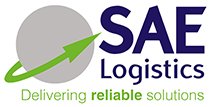
With less than 2 months to go before the end of the Brexit Transition period it is essential that you ensure your business is prepared.
From January 1, 2021, trade between the UK and EU will either be conducted under a Free Trade Agreement or will default to WTO terms. Whatever the situation, there will be changes to cross-border shipping processes.
At the end of the transition period it is expected that the EU will treat imports from the UK as it does Non- EU Countries currently. It is therefore very likely that Customs Processes will change.
To keep up to date go to gov.uk/transition to see the latest information however detailed below is guidance as to what you should do now to prepare.
What you should do to prepare
A commercial invoice will be required for all shipments from the UK to the EU (and vice – versa) from 01 January 2021.
To complete a commercial invoice you must –
- Include full name, address and contact details, for both you as the exporter and your customer, the importer
- Include your EORI number, make sure you’ve registered in your respective country.
An EORI (Economic Operators Registration and Identification number) is a European Union registration and identification number for businesses which undertake the import or export of goods into or out of the EU ).
- Describe the goods accurately, include the correct HS codes for every item and the value for each item being shipped.
An HS or HTS code (Harmonized System or Harmonized Tariff Schedule) developed by the World Customs Organization (WCO), the codes are used to classify and define internationally traded goods. You can search for an HS code using www.trade-tariff.service.gov.uk)
- Include the country of origin that the goods were manufactured in State the reason for export and include the Incoterms agreed with your customer.
- (Incoterms are a set of rules issued by the International Chamber of Commerce (ICC) which define the responsibilities of sellers and buyers for the sale of goods in international transactions. Each Incoterm rule clarifies the tasks, costs and risks to be borne by buyers and sellers in transactions.
2 examples are:
DDU / DAP – Delivered Duty Unpaid / Delivered At Place Unloaded, Duty Unpaid
DDP – Delivered Duty Paid
By shipping using an Incoterm DDU / DAP means that your customer will have to pay for all import duty / tax charges applied by the local country plus their admin charges. An import clearance agent may need to be appointed by your customer. Delays in making payments may result in storage charges being applied or at worse the goods being returned to the UK.
When shipping using DDP means that all clearance charges including import duty / tax, applied by the receiving country will be immediately charged back to SAE’s account. We will therefore on cost these charges to you, however, we may be asking for these charges to be paid immediately.
Some goods such as exhibition equipment / presentation equipment can be shipped using a title “Temporary Export”, however, goods shipped under this heading MUST be returned in their entirety to the UK within 6 months of departure and complete in every respect, E.G. – exhibition equipment or stands can be shipped as temporary export but any goods such as literature, products or giveaways that will not come back into the UK cannot be shipped as temporary export.
“Temporary Export” must be clearly stated on a commercial invoice and SAE must be notified in advance if you are shipping using this heading.
It is your responsibility to establish whether an export licence or other supporting documentation is required to ship the goods out of the UK.
- It is your customer responsibility to establish whether an import licence or other supporting documentation is required for them to import the goods into their country.
- You must inform your customer that local country import duties and taxes may be applied to the goods being exported from the UK.
Should you require any further information please contact our Operations Team on 01895 825258.

